"The past year has illuminated many things about the way the brain works, including how it responds to games. It is now erroneous to conflate ten hours of Super Mario with minor head trauma. We know that you won’t go blind if you’re looking for coins and bananas and rings on a screen all day. Your motivation and attention span will remain intact no matter what level you reach in Skyrim. In fact, the very latest science is telling us the exact opposite of what we thought all along: video games actually increase brain function."
Get Started for FREE
Sign up with Facebook Sign up with X
I don't have a Facebook or a X account
 Your new post is loading... Your new post is loading...
 Your new post is loading... Your new post is loading...

Sue Alexander's curator insight,
September 13, 2014 9:02 AM
It's a month into the school year, and our fresh starts are starting to fade. Time to revv up the positive vibes with these great quotes.

Monica S Mcfeeters's curator insight,
June 27, 2014 2:34 AM
I love this break down! Which motivation technique inspires learners the best? Can both be meaningful and why? Which technique do you feel Common Core applies most heavily? 
Raquel Oliveira's curator insight,
July 2, 2014 7:01 PM
ahhh...esse tal MOTIvo para AÇÃO... vale a pena conhecer mais a respeito para auxiliar os aprendizes a encontrarem o seu próprio caminho: interiormente ou exteriormente ? 
Mafe Dominguez's curator insight,
April 27, 2018 11:45 PM
There are different strategies that can be applied in class in order to motivate students and get a better quality education. These strategies involve some ingredients such as student, teacher, content, method (process) and environment that help to analyze the context, and therefore to increase learner’s motivation. Williams and Williams (2011) suggest some strategies that can be considered during class to increment this motivation. To begin with, Williams and Williams (2011) state that the first ingredient in order to increase motivation is the student. Since every student is different one to another, teachers need to find different procedures that allow students to learn as much as possible. In order to establish these procedures, teachers need to keep in mind the individual and social factors that affect students; in that way, the first strategy that should be considered to increase motivation is to provide students with support, if they have any difficulty with a particular topic, and opportunities for them to become active participants; it is also important to involve parents during the learning process, this means, parents should encourage and motivate students to do well in school. 1

Mary Lou Buell's curator insight,
December 6, 2013 5:30 PM
This makes so much sense to me--we have done a little of this with the cartoon and graph assignments. Thinking I should plan more.
Gary Harwell's curator insight,
December 8, 2013 6:09 AM
Most of our students are probably visual learners....... this explains a lot. 
Open Doors's curator insight,
January 12, 2014 5:59 PM
Helping children think in both pictures and words can help with language fluency and development of creative skills.
Kaley Hannon's curator insight,
September 16, 2013 2:12 AM
A study done in Germany argues that it's not the children who have the high IQ's that are growing most in their math skills but it is the ones who are most motivated. Through the research conducted they collected evidence that shows that the even though the kids with the higher IQ's started at a higher level when it came to understanding math the children who reported that they were motivated to learn math were the ones who picked up the math skills faster. 
Terri Goldson's curator insight,
February 1, 2014 3:21 PM
Unfortunately the intelligence quotient has always been the standard measure used within education and beyond, that is said to determine our ability to learn. We know through common observation, that premise is not always an indicator of success. Other very important factors play a role in everyone’s ability to navigate through life. Factors such as motivation, determination, perseverance and other intangibles are important influences. Tapping into those essential elements will make learning more meaningful for all learners. Knowledge IS Power!
Chaeyeon Seo's curator insight,
November 9, 2014 10:00 AM
Motivation is important not only in math but in every part of work

Kyle McAlister's curator insight,
September 21, 2018 10:49 AM
As I study to become a high school teacher in a metropolitan area, this article is pertinent to both my effectiveness in that position, as well as my current research. The methods that the article highlights regarding how to engage students who live in poverty and how to be a support for them speak directly to my question of how a teacher can influence poverty.
|
Nancy Jones's curator insight,
September 6, 2014 1:04 PM
In this edition of ASCD, I paid particular attention to Rick Wormeils article on "Motivating Young Adolescence as I begin my next 3 year relationship with 6th grade advisees. The first year in middle school is the toughest.

Lisa Simmons's curator insight,
April 3, 2014 4:11 PM
I love listening to these amazing and inspirational TED Talks!

Drora Arussy's comment,
September 8, 2013 4:57 PM
Student ownership and buy-in has always been key, thank you for sharing.

Audrey's curator insight,
August 16, 2013 3:17 PM
Psychology incorporates all of these "things": You should be in the classroom when Freud's 5 psychosexual stages are put forward (humour, lively environment and wonder!). Start the class with pop music which links to the topic (understanding their world). At the first lesson when I have asked students to write on the board what they want from the lessons (the only one of the above they have ever written down was humour). When I asked them to give me examples of what they meant, they could not. When I explained that they needed to tell me what they meant by "fun classes", as I was I trained to teach and tutor, not to make jokes, they were unable to tell me. When I conducted conformity research by having a group of students walking down the corridor dancing to music played over the intercom to see whether other students would conform by joining in, I demonstrated what they meant by fun. I have learnt from more enlightened others that a Tutor / Educator guides by pointing out where to find the relevant information plus discussion questions which allows learners to share information, analyse and evaluate during class. After more questions which stimulate arguments, the learners are given a question to answer. 
Sue Alexander's curator insight,
August 17, 2013 10:51 AM
Some wonderful questions that I look forward to answering. 
Beatriz Montesinos's curator insight,
August 20, 2013 12:42 PM
¿Hay diferencia entre "alumno" y "aprendiz" y entre "profesor" y "educador"? |



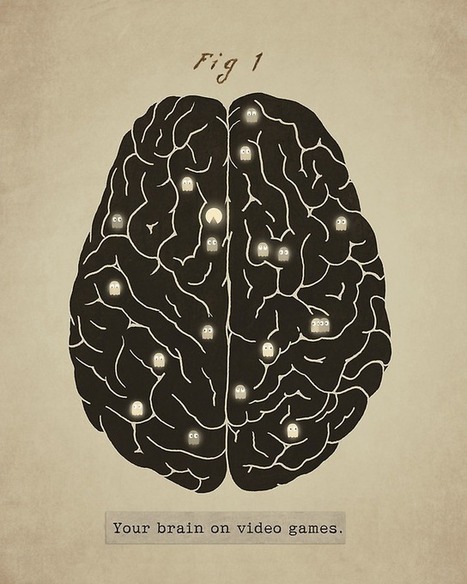

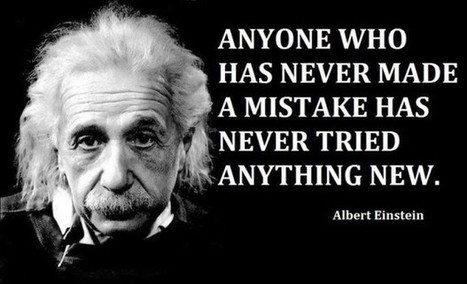


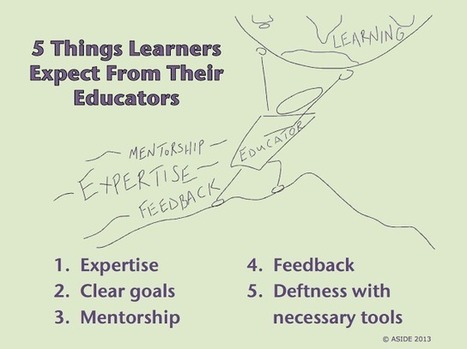
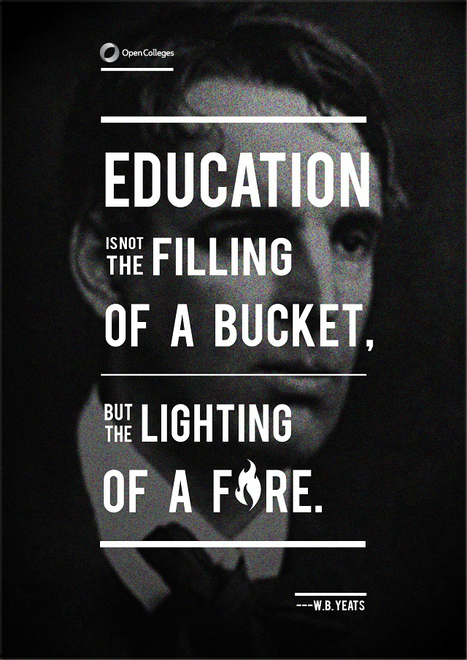




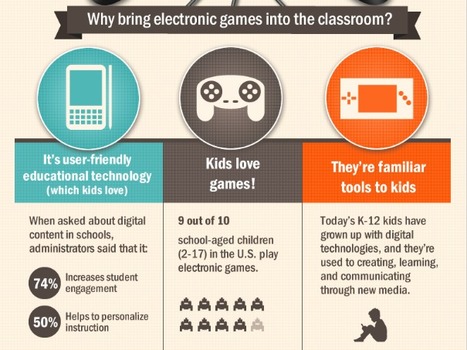





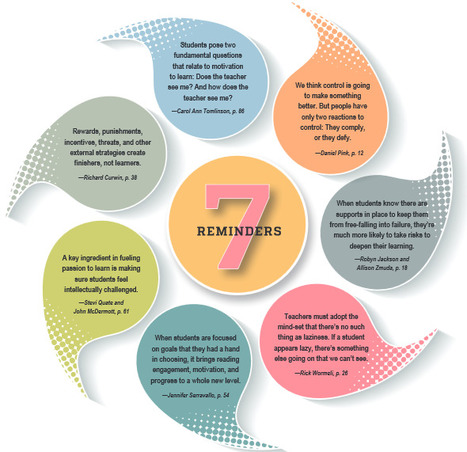



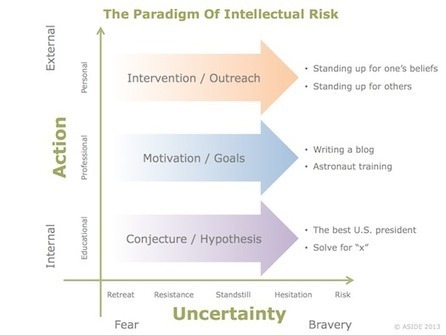


![Why Teachers Want Technology - Survey from PBS [Infographic] | Eclectic Technology | Scoop.it](https://img.scoop.it/Vv9NKVDzhVBJQnPkzX0ZxTl72eJkfbmt4t8yenImKBVvK0kTmF0xjctABnaLJIm9)

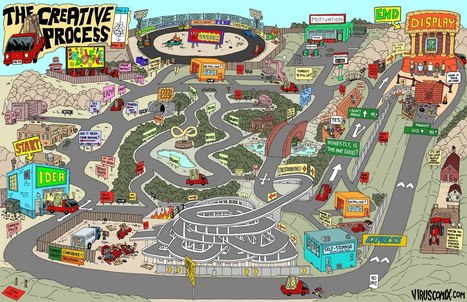





game your biais away ! #antifragile #agile